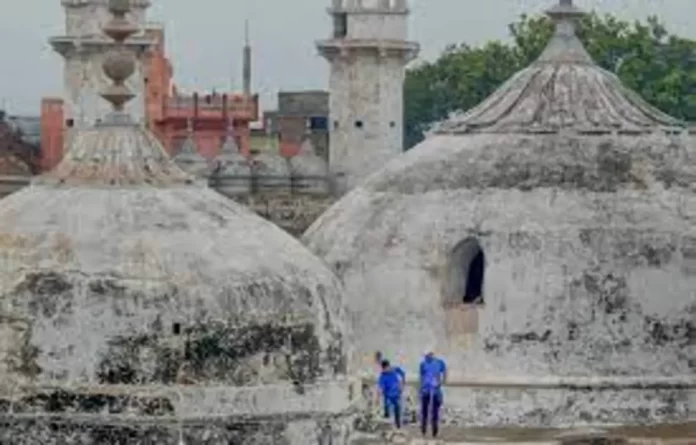The Allahabad High Court on Thursday reserved its verdict in the Gyanvapi Mosque committee’s plea challenging the Varanasi Court’s order allowing puja in Vyas Tehkhana, situated in the southern cellar of the Mosque. A bench comprising Justice Rohit Rajan Agrawal reserved the order after hearing from both parties in four days.
The petition before the High Court was lodged by Anjuman Intezamia Mosque Committee on February 1, after the Supreme Court denied to urgently hear the Mosque Committee’s plea against the order allowing puja in Vyas Ji ka Tehkhana. The committee mentioned that the Vyas Tehkhana was under their possession as being a part of the Mosque premises and that the Vyas family or anyone else did not have any right to worship inside the Tehkhana.
The committee also argued that it was an admitted fact that since 1993 there has been no puja in Tehkhana, and therefore, if after 30 years, the court was appointing a receiver and changing the status quo, there should have been some cogent reason behind the move. It also contended that the Hindu Plaintiff was never in possession of the Vyas Tehkhana, and that the question about possession can only be decided after framing of issues.
Meanwhile, Advocate Hari Shankar Jain and Advocate Vishnu Shankar Jain appearing for the Hindu Plaintiff stated that their first prayer for the appointment of a receiver was allowed on January 17. The counsel added that due to some omission, the second prayer for the performance of prayers inside Vyas Tehkhana was not allowed. He mentioned that when they requested the District Judge to allow the second prayer too, he allowed the same on January 31st by invoking powers under Section 152 CrPC.
The dispute relates to Somnath Vyas Tehkhana inside the Gyanvapi Mosque premises. The Vyas family allegedly conducted religious ceremonies in the basement until 1993. Nonetheless, in compliance with a directive from the state government, the religious practices were stopped.


